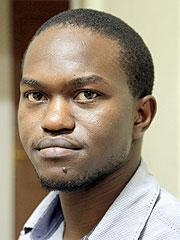During my secondary school days teachers always reminded us to show rather than tell whenever we were answering examination questions. It was for this reason that many would conclude that A levels were tougher than university exams (in Uganda).


During my secondary school days teachers always reminded us to show rather than tell whenever we were answering examination questions. It was for this reason that many would conclude that A levels were tougher than university exams (in Uganda).
Showing means going beyond claims. It meant that if you say that there is copper mining in Zambia during a Geography examination you go ahead to draw a map of Zambia and show the areas where the mineral is mined.
Even with journalism one is always reminded to show rather than tell. It seems to be a rule that can be applied almost to anything. This is because talking has always been the easiest bit of work. It is no wonder we have more people aspiring to be politicians than doctors.
The East African Community is one of those institutions that one barely misses when you pick up a newspaper in any of the five countries that make up the bloc. One of the reasons why EAC is a common fixture in our news is the numerous meetings or summits that our leaders hold in the different capitals plus Arusha where the secretariat is found.
All these meetings are concluded by a declaration or communiqué depending on the chosen nomenclature. I have for example lost count of the number of times our leaders have promised to construct a railway or a pipeline. I have heard it so many times that each time I see it in a headline I move to the next story.
You do not need to be a rocket scientist to understand that this region badly needs a good railway system especially for purposes of moving cargo from one area to another. All over the world, cargo trains are known to be a cheap way of moving goods on land.
If you have had the experience of driving a salon car on our highways you would know how much of a danger it is given the huge number of big trucks carrying containers or fuel tankers. Your chances of survival once involved in an accident with such vehicles are almost zero.
When a driver has to move goods from Mombasa to Goma there will surely be a point where fatigue will kick in and if he is not steady then he is bound to cause an accident. With the fuel tankers it is worse as an accident often means fire and yet it often comes when poor careless people are trying to fetch the spilling petroleum products.
A faster and more modern railway from Mombasa snaking all the way to Bujumbura and one from Dar to Kigali or Bujumbura would go a long way in cutting down on the number of trucks we have on our roads. This would mean the fatal accidents with this huge steel blocks will also go down.
Having less heavy trucks on our highways will mean that they will have a longer life span than is the case today. These huge over loaded trucks are known to wear and tear the tarmac which calls for expensive regular repairs. It is now almost a constant that from Kigali to Mombasa by road there will always be a section that is being repaired or one that needs to be repaired.
We also know that since rail transport is one of the cheapest, goods transported that way will certainly be cheaper than those transported by the trucks. The benefits of an oil pipeline extending from Eldoret to Bujumbura are well known - cheaper fuel and safer roads.
Despite all the benefits we know about these railways and pipelines we still opt to do more talking than construction. I think each EAC government should be committing a certain amount of money for the construction of a railway each year.
Even if we were constructing 50km of rail per year it would be better than spending money on summits each year promising the same thing. We need to read about the history of the construction of the Kenya – Uganda railway and copy that example.
It was not built in one day but slowly by slowly, the metallic snake as some called it, moved from Mombasa all the way until it got to Kasese in western Uganda and even Pakwach in north Western Uganda.
If we had a good railway from Dar to Kigali I do not even think we would be talking about something small like road toll fees to be paid by trucks from either country. We have heard this railway/pipeline song for far too long.
Blog: www.ssenyonga.wordpress.comTwitter: @ssojo81


